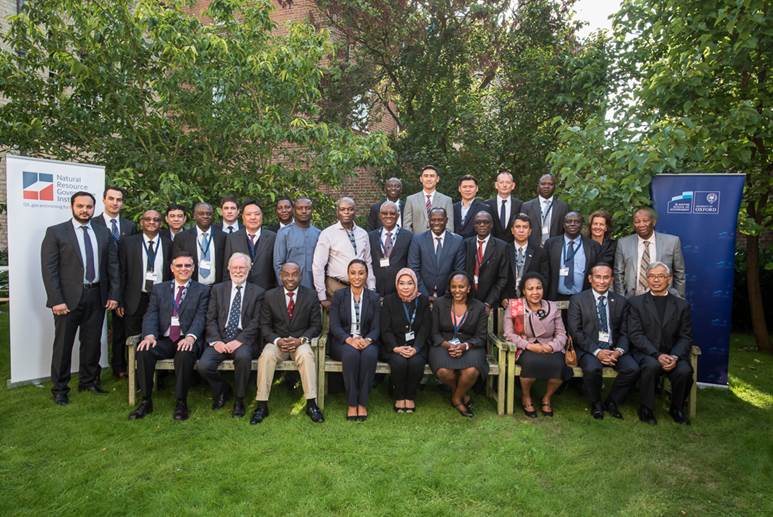
High-Level Executive Course in Extractives Underway at Oxford
This week, 29 participants from 13 countries — including Ghana, Chile, Uganda, Myanmar, Mongolia and Guinea — are taking part in our third annual Executive Course in Oil, Gas and Mining Governance in Oxford.
The course is co-organized and developed by the Blavatnik School of Government (BSG) and the Natural Resource Governance Institute with senior government officials and other innovative agents of change in mind.
“Our mission is to help countries realise the benefits of their natural resources and subsoil assets,” said NRGI president Daniel Kaufmann. “This course provides the reflective space to consider the complex options in effectively managing non-renewable resource wealth. We’ve partnered with the Blavatnik School of Government to convene some of the most respected experts in their field for participants to learn from.”

Credit: John Cairns Photography
Built around the Natural Resource Charter, the event is structured to provide participants with an overview of key policy decisions that governments face in extractive resources management. This includes:
- Discovery and management of public expectations
- Tax and contracts
- National resource companies
- Resource revenue management and investment
- Governance and political commitment
Participants will develop a clear understanding of the elements of a national natural resource strategy, as well as the ability to lead the formation of such a strategy within their respective governments.
Course alumni highlighted the input of internationally renowned experts and the opportunity to learn from other countries with similar natural resource extraction and the revenue management issues.
Helder da Costa, general secretary of the g7+ Secretariat, said that the peer learning experience was highly useful. Another 2014 alumnus, Tony Aubynn, CEO of the Mineral Commission in Ghana, pointed to the importance of having “confirmation of what you have been thinking” with regards to certain aspects of natural resource management.
The Executive Course on Oil, Gas and Mining Governance runs from 6-11 September 2015. For further information on the course, please visit the NRGI course page and the BSG course description. You can view interviews with previous participants on our YouTube playlist.
Among the distinguished faculty this year are Kaufmann, Professor Sir Paul Collier (BSG), Professor Ngaire Woods (BSG), Keith Myers (Richmond Energy Partners Ltd.), Michael L. Ross (Professor of Political Science at the University of California, Los Angeles, UCLA) and Eric Parrado (Universidad Adolfo Ibáñez). They will lead interactive lectures, group discussions and practical skill-building workshops around communicating with the public.
Helen Dempsey is a capacity development associate with NRGI.
